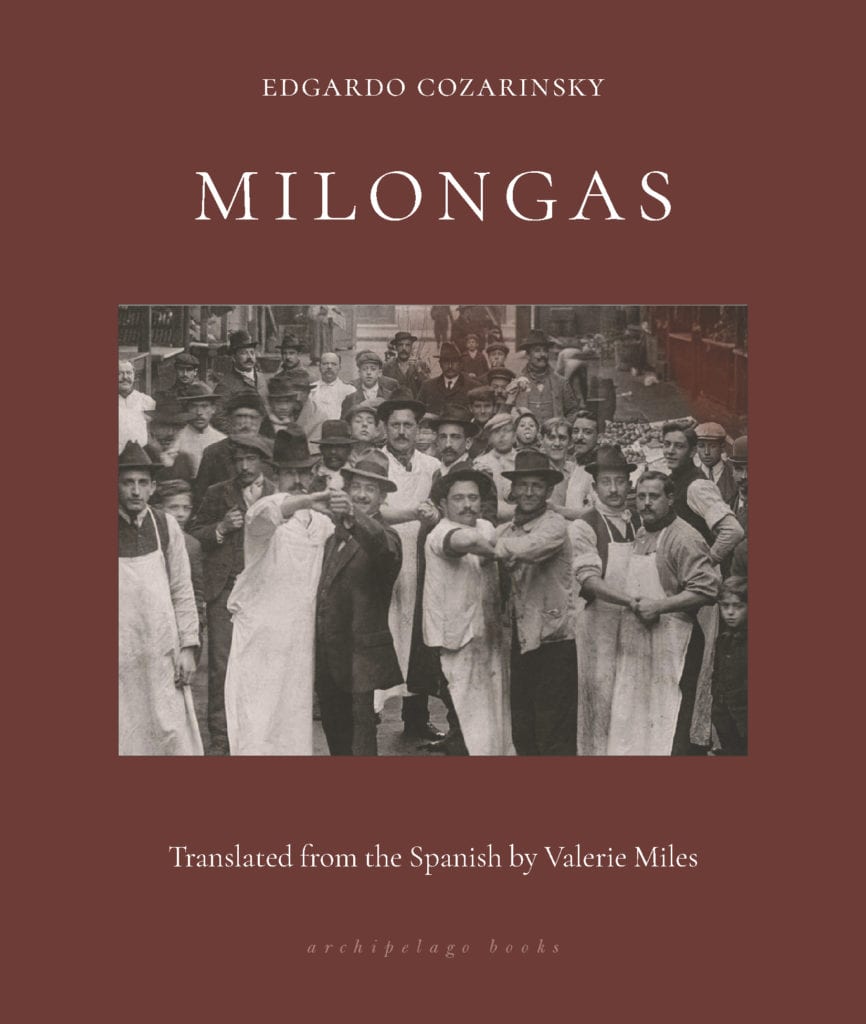Book Description
From its origins in the slum yard bars of Buenos Aires, Cozarinsky moves us through the rich and varied culture of tango, circling the globe to hidden milongas tucked away in the crypt of a London Church, a café in Krakow, the quays of the Seine, to the Red Square of Moscow. At neighborhood dance halls vibrant and alive in the early hours of the morning, where young and old, foreign and native, novice and master come together in a tradition that traverses borders, demographics, and social mores, “it is impossible to distinguish the dance from the dancer.” A filmmaker as well as a celebrated writer, Cozarinsky opens a window into the timeless dance, celebrating its traditions, its evolution, and the individuals who give it life.
Through wry anecdote and masterful observation, Argentine writer and film director Cozarinsky unspools the history of tango and its cultural influence across the globe . . . With the companionable tenor of a humorous, well-informed raconteur, he traces tango dancing’s rise . . . These immersive snapshots are tantalizing.— Publishers Weekly
Cozarinsky boils the complex and often contradictory history of the dance down to its discrete and essential germs, whose sparks linger in the imagination on account of neither their perceived historical significance nor their verifiable objectivity but their ability to engender delight in their retelling . . . [He] sketches a history of the milonga centered on passions, intrigues, and oddities . . . A well-researched and deftly written catalogue of memories and primary source accounts.— Jenny Wu, Full Stop
Argentine writer and filmmaker Edgardo Cozarinsky traces [tango's] fascinating journey through time and the seedy brothels and rough Argentine and European bars where the dance could be quite mannered or could spark with theatrical violence . . . Cozarinsky takes us through the ebbs and flows of the popularity of the tango, and also through a number of its evolutionary adaptive speciations . . . It would be very interesting to know what Cozarinsky thinks of the future of the tango now.— Susan Smith Nash, World Literature Today
The success in [Cozarinsky's] prose (as adeptly conveyed into English by Valerie Miles) lies in how well it captures the visual quality and physicality of the dancers and others in the small rooms where these dances take place in Krakow, London, Paris, and Buenos Aires . . . Cozarinsky’s history of milongas is concise, briskly paced, crammed with facts and telling, interesting examples.— Tom Bowden, Bookbeat
PRAISE FOR EDGARDO COZARINSKY
—
Cozarinsky, who is a filmmaker turned writer, or a writer turned filmmaker, has produced here an album of postcards made of words. But his postcards might well take visual form…a kind of lived literature.— Susan Sontag
Very innovative for its time... Urban Voodoo anticipated the trend of mixing essay with fiction, and in so doing advanced new and interesting directions for literature. It seemed to be made of stories that were like essays and essays that were like stories.— Enrique Vila-Matas
... Fiery intellectual strength and a powerful originality. La novia de Odessa, in its deceptively quiet manner, belongs on the same shelf as those other sceptical masterpieces, the novels of Joseph Roth and the memoirs of Julien Green.— Alberto Manguel
His novels and stories...are full of hidden, half-told histories, subtle references to names, tunes, places that may mean little at first but which are imbued with the melancholy of tango, the hopelessness of exile and the allure of the exotic; exciting when seen from the distance of time, tawdry and deceptive up close.— Patrick O'Connor
The winning work is, above all, a book written with wonderful narrative craft, with deep roots in an ancient literary tradition and a remarkable intellectual solidity. Among his themes are existential identity, old age and the unreliability of memories, all elaborated upon by Cozarinsky in a singular way, lending them deep and necessary literary dimension.— Gabriel García Márquez
Cozarinsky conveys the sense of urgency and nostalgia that accompanies messages that seem to come from the past or from a place that does not exist.— Ricardo Piglia
A master of the image and the word. — La Nación

